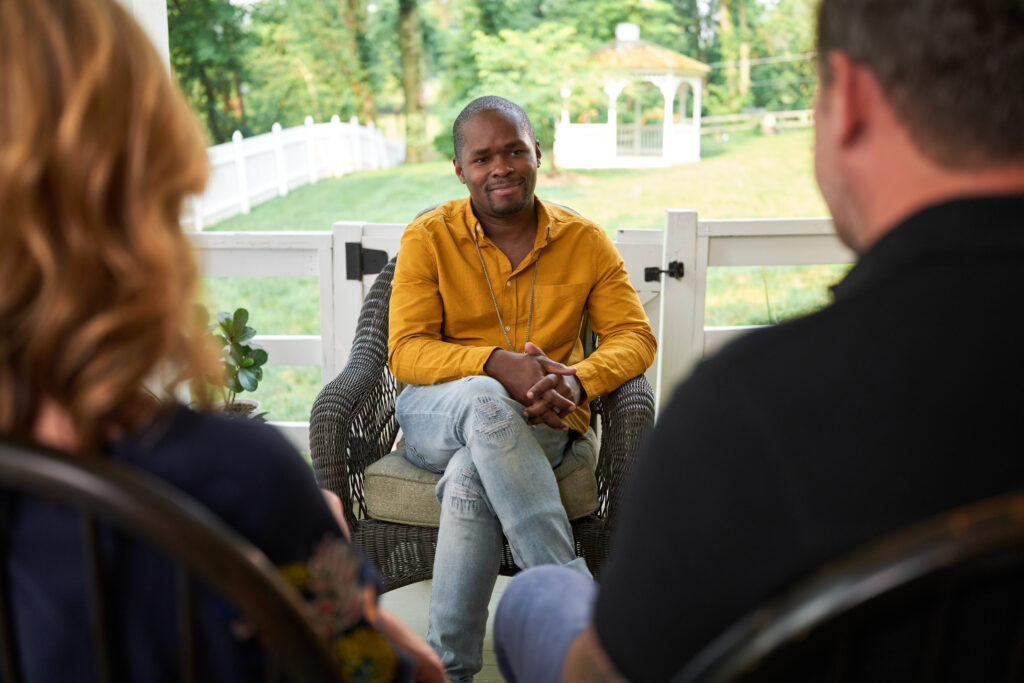Home > About Doulas > What Is a Doula?
 WHAT IS AN END-OF-LIFE DOULA?
WHAT IS AN END-OF-LIFE DOULA?
INELDA defines an end-of-life doula as a non-medical person who accompanies, educates, and advocates for those who are planning for death, diagnosed with a terminal illness, or facing imminent death, and their circle of care. Doulas also support people and communities who have experienced a sudden death.
Doulas offer resources to help the dying person and their circle of care to make informed decisions in a supportive environment.
A doula can become involved any time in a person’s life. We offer support when people are impacted by a life changing illness, after a terminal diagnosis, when death is imminent, or even after a death—to help with light grief support. Sometimes family members or loved ones of the person dying seek support and guidance from end-of-life doulas.
Doulas normalize deathcare by creating spaces to hold conversations leading to increased communication and increased spiritual and emotional well being. When individuals plan for death, they have autonomy over their decisions and are able to clearly define their end-of-life wishes with family and loved ones. While there are alternative names for end-of-life doulas like death doula, death midwife, death coach, end-of-life coach—we all seek to provide compassionate deathcare.
HOW DOULAS SERVE
- Provide the opportunity to speak openly and frankly about dying
- Explore the meaning of the dying person’s life and legacy
- Bring a focused and intuitive presence to the bedside
- Develop a plan for how the space looks, feels and sounds
- Incorporate traditions or create new rituals to mark special moments
- Encourage appropriate ways of touching and caressing the dying person
- Assist with physical and practical care to ease the burden on caregivers
- Provide respite for exhausted caregivers
- Explain the signs and symptoms of the dying process
- Process the emotions and experiences with loved ones
- Support the spiritual practices of all involved
- Guide people through the early stages of grieving
THE DOULA MODEL OF CARE
The INELDA doula model focuses on three main aspects of care.
- Summing Up and Planning, can begin any time after a terminal diagnosis. It involves helping the dying person explore the meaning of their life, create a personal remembrance project with loved ones, and plan for how the last days of life will unfold. The doula also finds ways to deliver the quality of life the dying person wants—given the circumstances of their life and illness.
- The Vigil begins when the doula companions the dying person and loved ones through the last days and hours of life by providing emotional support, respite and physical assistance for caregivers, an understanding of the signs and symptoms of dying, and advocacy for the wishes and rituals expressed when planning for that point in the illness.
- Reprocessing and Early Grief begin in the days or weeks following the death, when the end-of-life doula supports loved ones in exploring the feelings and events of the dying process and then guides them through the early time of their grieving. This work can occur in as few as one to three sessions or go on for several months.
The doula role may incorporate all of this work or focus on particular aspects of it—whatever works best for everyone involved. Throughout their involvement, as appropriate, the doula will interface with the dying person’s medical team to ensure consistency in end-of-life care.
HOW DOULAS SERVE
- Provide the opportunity to speak openly and frankly about dying
- Talk about creating an advance care directive
- Explore the meaning of the dying person’s life and legacy
- Discuss and support end-of-life care planning
- Develop a plan for how the space looks, feels and sounds
- Incorporate traditions or create new rituals to mark special moments
- Encourage appropriate ways of touching the dying person
- Bring a focused and intuitive presence to the bedside
- Assist with physical and practical care to ease the burden on caregivers
- Provide respite for exhausted caregivers
- Explain the signs and symptoms of the dying process
- Process the emotions and experiences with loved ones
- Support the spiritual practices of all involved
- Guide people through the early stages of grieving
“During the vigil, the doulas stayed with us continuously, and used my mom’s guided visualization and music to help her stay calm and let go more easily. They supported me emotionally, eased my anxiety, and guided me through the entire process. When I look back now, I think of the doulas as angels who transformed my mom’s dying into an experience of deep meaning that I will carry through my grief and for the rest of my life.”
